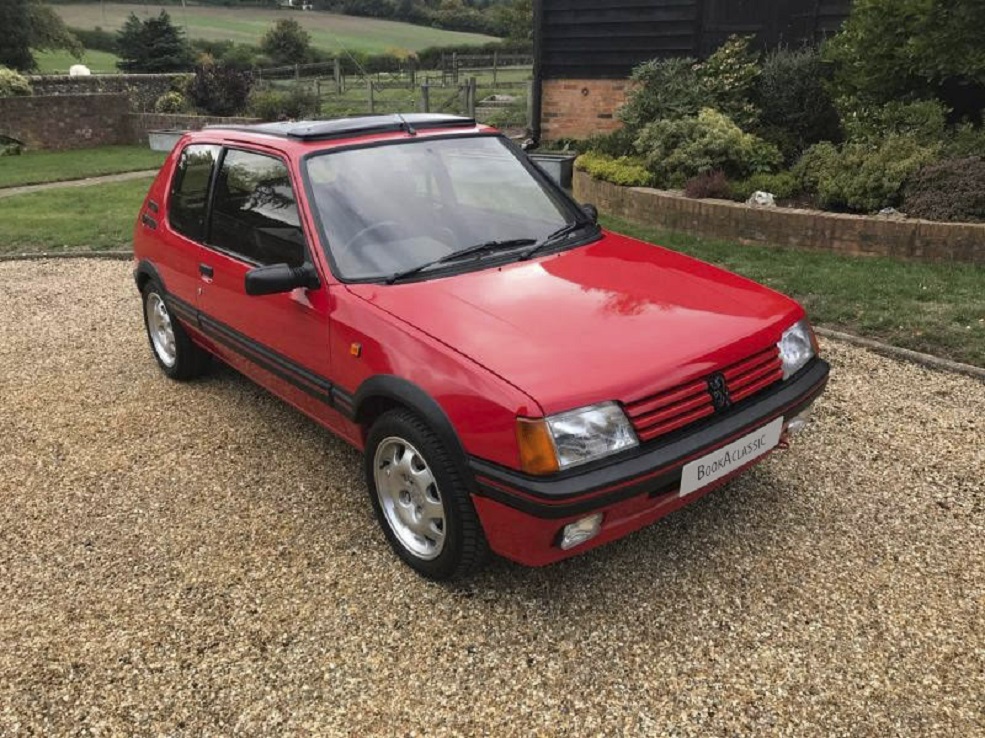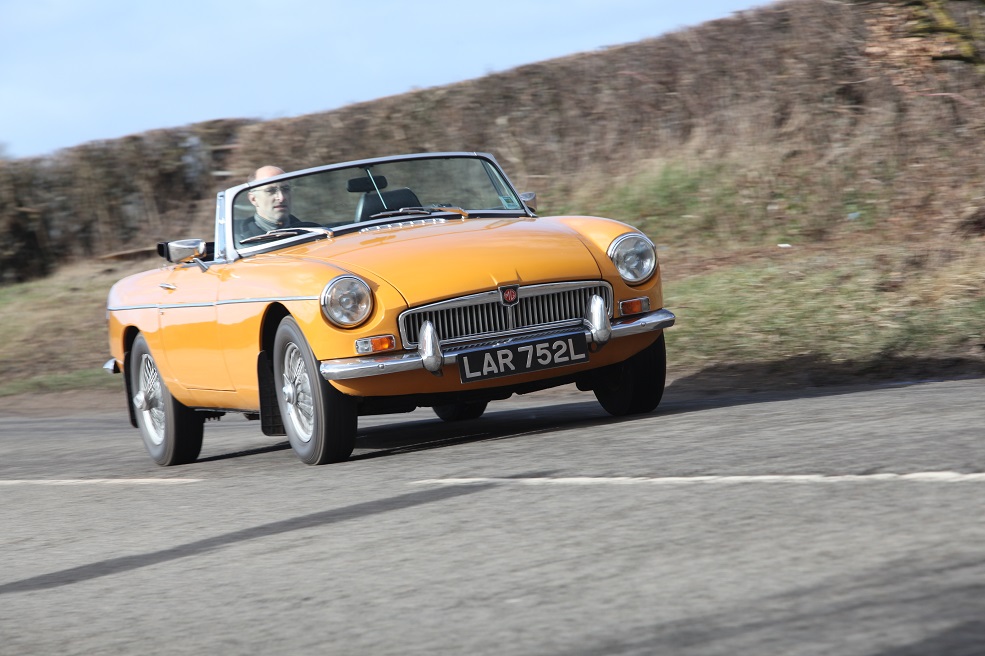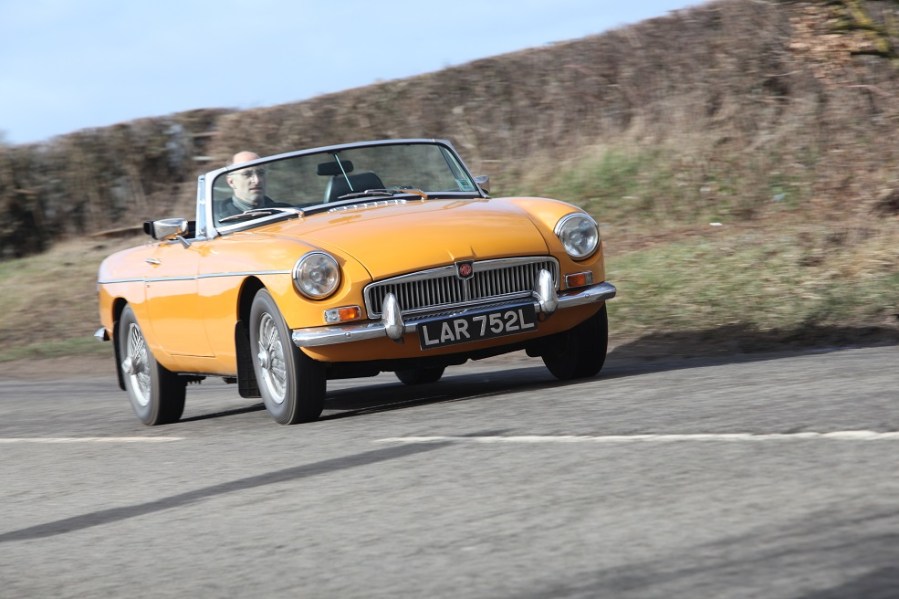Like or not, climate change is a big deal for motorists. Only a few weeks ago a report by the MPs from the Science and Technology Committee concluded that the UK isn’t going to fulfil its climate change promises if car ownership levels stay as they are now. But could sharing classics be the answer?
MPs and manufacturers believe car sharing could be the answer to keeping a lid on CO2 output, not only by reducing private ownership but also by being better aligned with electric technology. That’s all well and good for new cars of course, but with historic vehicle ownership also under increasing pressure from legislative threats and related costs, could there be a future in sharing classics instead?
When it comes to contemporary vehicles, car-share schemes (sometime known as car clubs) are increasing in popularity in the UK. The number of cars in such schemes has gone from 3188 in 2015 to 5385 this year and membership has climbed from under 200,000 to just over 350,000, according to research from CoMoUK. Around 60 per cent are based in London, where the likes of Zipcar, Enterprise Car Club and BMW’s DriveNow operate. Volkswagen also launched WeShare in June, starting in Berlin with 1500 e-Golfs.
Of course, there are criticisms. Not all share clubs have been profitable, and it’s hard to imagine these schemes replacing car ownership outside of urban areas, where population density is much lower. But where possible, sharing allows people the use of a car without the financial burden of private ownership.
Air B&B for classic cars?
There can be little doubt that the historic vehicle movement, while currently booming, faces new challenges. Some are climate related, with legislation coming from the need to implement low-emission zones joining a push towards alternative fuels, which is likely to increase running costs for cars with internal combustion engines. However, there are also considerations such as the increase in car-free housing, unavailability of spares and an ageing demographic with disappearing skills.
So, could sharing or renting be the answer for those forced out? Well, there definitely seems to be a rising trend in ‘Air B&B’-type schemes for historic motors. One such example is DriveShare by Hagerty, which operates in the US. Though still fledgling, it allows people to rent cars from private owners, with the owner able to set the price, mileage and deposit on their car. A review system is also employed. The idea is that renters can drive classics without the investment of ownership.

In Europe, a similar platform called BookAclassic was launched as long ago as 2010 by Danish entrepreneur Claus Stig Christensen. Operating in 36 countries via an online booking system, it currently includes over 5100 cars to choose from, from Fiat 500s to prestige saloons, iconic supercars and even a tank. Again, the cars are rented from private owners, who can set the terms and decide whether they will drive themselves or let someone else get behind the wheel.
Renting won’t suit everyone of course, but for those who participate, the benefits seem to be clear. Those who want to drive a classic without committing to ownership can do so, and owners can generate funds to help cope with maintenance and extra legislative costs. Amanda Holly, from London, rents 16 cars out with BookAclassic. “I have a collection of cars from 1970s – 2000s including a Porsche 944 and a stunning gold Mercedes 280 SE 3.5,” she said. “I also have vintage motorbikes including Jota and Leverda. I have been renting my vehicles out for a year and have used the funds earned to help with the maintenance.”
But what about the environmental aspect? After all, with modern car sharing schemes are ultimately aimed at reducing ownership in line with climate promises, so will we see a cull in privately-owned classics too?
Claus Stig Christensen doesn’t think so. “There are definitely lots of signs supporting the fact that cars will not be owned by individuals in the future but instead will be ordered to rent via a mobile phone. But classic cars are different. Classic cars are all about passion, heritage, enjoyment and style and are not just objects to be transported in.
“So we believe that in the future many classics will still be owned by private collectors and enthusiasts. But “sharing” your classic car is a key part of the future. Over the last year we have welcomed thousands of owners who see the benefits of sharing their classic car with others. By offering them for events, movie productions, fashion shoots or personal enjoyment, they can provide great experiences and earn some money to maintain and keep their classic in perfect condition.”
Pros and cons
In our view, there are both pros and cons for sharing classics. On the one hand, it provides the financial assistance to keep classics on the road, and helps those who are priced out. It also has the potential to extend classics car experiences to an audience who may never have considered ownership, as well as providing an opportunity to sample a whole range of different vehicles rather than just being limited to your own car or cars.

But whether it’ll lead to fewer classics on the road long term remains to be seen. In theory, those that do remain on the road will be busier, but the total number of classics could reduce. And with more obscure cars less likely to be popular with renters, only the more established classics may be able to survive. It also seems likely that total classic usage could reduce. Part of the fun of owning an older a car is spontaneity, but those evening blasts around country lanes won’t be nearly as easy if you need to rent a car first. Good environmentally perhaps, but a shame otherwise.
So can widespread classic car sharing replace widespread ownership? Sharing certainly has its plus points and offers an excellent option for classic enthusiasts not able to run a car of their own, but it can’t work in the same way as with modern sharing clubs. Huge fleets of company-owned classics is a pipe dream – sharing a classic will surely rely heavily on private owners, and if they all want to switch to renting, they’ll be no cars to share. If the benefits can be kept mutual however, then sharing could be used to better arm the classic car scene against the challenges that lie ahead.




